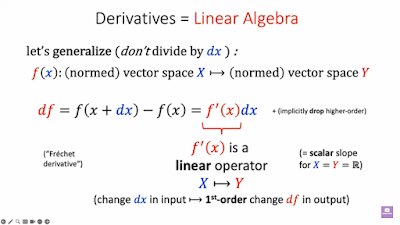Christopher A. Fuchs on the Day QBism Shot Itself in the Foot
Talk given at TSC 2019 at Interlaken, Switzerland, 26 June 2019:
See Unknown Quantum States and Operations, a Bayesian View by Christopher A. Fuchs and Ruediger Schack (2004).
The following slides appear in the reverse order in Fuchs' talk:
Subscribe to Chris Fuchs.
Roger Penrose gave a talk just beforehand: he starts by characterizing understanding, giving examples from games like chess and go, where simulation leads to bad decisions when started from "stupid positions":
His slide on the evolution of mathematical ability, starting from a completely stupid position:
22:42 He says the he holds the view that "what goes on in our brains is part of the physical world." If by that he means neurophysiological phenomena such as synapses, blood-flow, neurotransmitters etc, then that is surely incontestable, so he must mean something stronger. He means that understanding is something that goes in a human brain, and that understanding itself must therefore be part of the physical world. I presume it's something like physicalism: The general idea is that the nature of the actual world (i.e. the universe and everything in it) conforms to a certain condition, the condition of being physical. Of course, physicalists don’t deny that the world might contain many items that at first glance don’t seem physical — items of a biological, or psychological, or moral, or social, or mathematical nature. But they insist nevertheless that at the end of the day such items are physical, or at least bear an important relation to the physical.
But is it really the case that understanding is something that goes on in a single human brain? To me it seems that understanding is more of a relation between subjects, like common knowledge. If so then understanding is always itself relative to some context: i.e. with respect to some phenomenon which is the object of attention, and by some communicating observers who have their shared attention on that phenomenon. Then clearly mathematical understanding co-evolved with human language use.
1:34:23 There's Q&A afterwards and the first question is about contexts of time. See Curt Jaimungal Interview with Aaron Schurger and Another Curt Jaimungal Interview With Roger Penrose. The latter, with his response to this question (about "the extended now in psychological time" 1:19:52) indicate that Roger Penrose and I do not understand this thing! The problem seems to be with the ontological status of time. For Penrose it just depends on whether or not the theory has a t in it! (see his response at 1:52:51) But in a real experiment measuring t is not so easy. What the variable t refers to is some idealized notion represented by a real number or something, but that by no means makes time perfectly deterministic! My personal suspicion is that it is precisely this inability to objectively describe the passage of time that is ultimately the cause of all the observer dependencies/uncertainties that show up in quantum mechanics.
2:10:14 A question about "proto-consciousness" and its presumed physical origin. There was only time for Roger Penrose's answer. He says he does not expect quantum mechanics to provide a theoretical underpinning for consciousness precisely because quantum mechanics does not provide a theoretical underpinning for when wave-functions collapse. So the incompleteness of quantum mechanics in his view is its failure to provide a theory for when the complex-valued probability density functions of quantum states collapse to probabilistic measurement outcomes.
Subscribe to TSC.










Comments
Post a Comment